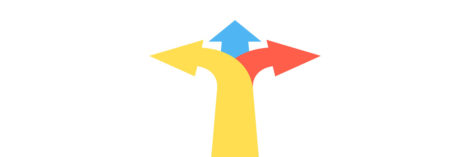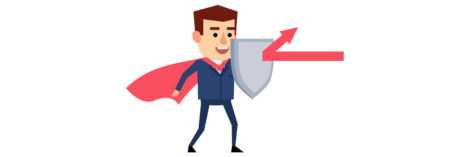In B2B market research, telephone surveys are still a popular methodology. Indeed, there are no sizeable B2B panels to conduct an online survey as in B2C. Therefore, a sufficient number of responses can often only be obtained via telephone calls. However, this approach presents many difficulties that we discuss in this article.
B2B telephone survey: 48-hour quote
Summary
- The different methodological approaches for B2B market research
- Average response rate to a B2B telephone survey
- Budget for B2B telephone research
- Tips for getting around the difficulties of B2B telephone surveys
- Conclusion

B2B market research: the different approaches
Different methodological approaches can be followed when it comes to B2B market research. At IntoTheMinds, we use 3 main methods:
- B2B telephone surveys
- B2B online surveys (thanks to our panel of over 30,000 B2B respondents)
- face-to-face surveys
Here is a brief description of the 3 methods.
B2B telephone survey
The B2B telephone survey is the classic alternative when the online approach is impossible. This approach consists of calling B2B targets to ask them questions. You can use the telephone approach in a quantitative framework (survey with closed-ended questions) and a qualitative framework (semi-structured interview). The duration of the telephone survey is an important variable that will condition your success rate (see next section).
B2B online survey
While the self-administered survey is the standard method in B2C market research, it is rarely used in B2B market research. The reason is simple. There are no B2B panels. The size of the few B2B databases is also limited. Despite all these constraints, IntoTheMinds manages to propose 30,000 B2B respondents online, covering almost all sectors.
Face-to-face B2B survey
The last method is the face-to-face survey. It became impractical during the Covid period but is now being used again. It consists of interviewing B2B targets face-to-face. Trade shows are the ideal place for this kind of exercise. As part of our sector monitoring, we visit several trade shows each year and take advantage of the opportunity to survey the market with exhibitors. For example, in the food industry, SIAL is an essential place to realize field market research.
Contact us for your B2B market research
What is the response rate for a B2B telephone survey?
The big unknown in any telephone survey is the response rate. This is the ratio of the number of complete responses you collected to the number of calls you had to make.
Let’s take an example. You collected 100 complete responses to your questionnaire by telephone. You had to call 500 different people. 400 refused to answer or did not answer the entire questionnaire. Your response rate is, therefore, 100/500 = 20%.
In reality, the response rate depends on several factors:
- The type of target: the higher the person is in the hierarchy, the more difficult it will be to reach them
- The size of the sector: it will be easier to collect responses in a sector of activity where there are many targets than in a niche sector
- The length of the questionnaire: the longer the questionnaire, the less likely it is to get responses
Compensation: if you offer a financial incentive, it will be easier to get responses - Type of questions: intrusive or confidential questions will be blocked by B2B respondents
- The nature of the survey: some telephone surveys, especially if they answer “trendy” questions or if a prestigious customer orders them, are likely to increase the response rat
- Timing: season, day, and time impact the response rate in B2B. For example, absenteeism is higher during the summer, which will make the telephone survey more difficult.
Our experience with B2B telephone surveys shows that the average response rate is between 5% and 10%. In other words, you will need to call between 10 and 20 people to get a complete response.
The average response rate for a B2B telephone survey is between 5% and 10%.
What is the budget for a B2B telephone survey?
The B2B telephone survey budget is a direct function of the response rate. The lower the expected response rate (see factors above), the higher the budget.
The budget is also composed of fixed costs related to:
- project launch and coordination
- creation and optimization of the questionnaire
- data analysis
Our experience shows that the final budget is usually between 50€ and 100€ per complete response. This budget includes the creation and optimization of the questionnaire and the analysis of the results. In other words, collecting 100 complete responses by phone in B2B will represent a budget of €5000 to €10,000.
How to get around the difficulties of a B2B telephone survey?
The costs of a B2B telephone survey are mainly the result of the low response rate. Therefore, it is this variable that you must address to overcome the difficulties.
Our experience shows us that you can use a few tricks to increase the response rate, i.e., the acceptance rate of the survey.
Contact only members of your network
First of all, check your LinkedIn profile to see who you know. Contact them first. If they don’t want to, / can’t answer, ask them to recommend someone to contact. If you have an extensive network of acquaintances, it may be sufficient to use them to reach your response quota.
The recommendation
Recommending a third person known to the respondent is a reasonably effective technique to “get your foot in the door.” To use it, systematically ask all your respondents to give you advice on 1 or 2 people to interview. This technique is called the “snowball effect.”
Using a database of pre-qualified respondents
Here is a technique we use pretty often to simplify telephone interviews. For years, people have been registering on our website to participate in our surveys. So, we can afford to tap into this GDPR-compliant database to simplify respondent recruitment.
Conclusion
The telephone survey is one of the classic methodological approaches in B2B market research. The high rejection rate makes its realization complex for the contacted persons. Various tricks can be used to accelerate the realization of a telephone survey and reduce the budget: snowball effect, recommendation, and database of pre-qualified respondents.
We are experienced in all these techniques. If you need to realize a telephone survey in B2B, think of contacting us!
Posted in Marketing.



